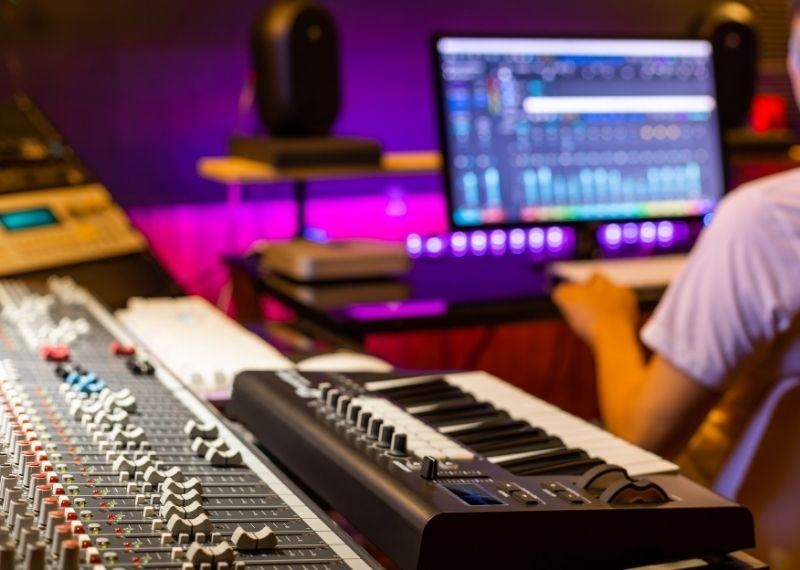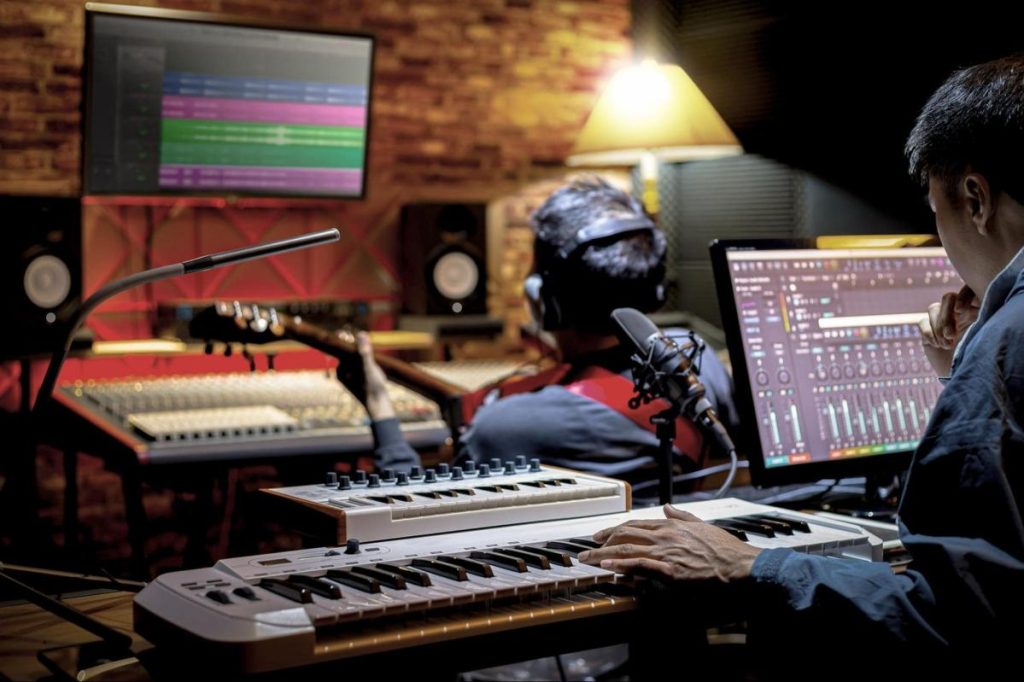Where Baroque Meets Tech: Perfecting Bass Recorder Recordings in SoundLab
/ by hqt
A Grand Instrument with a Humble Past: The Bass Recorder
The bass recorder is not a new idea. It came to life during the Renaissance and Baroque times. People enjoyed its deep, soft sound. It added warmth to music. Later, smaller recorders like the soprano and alto became more common. They were easier to play and carry. Because of this, the bass recorder was used less. It slowly stepped out of the spotlight.

Now, things are starting to shift again. Many musicians are picking up the bass recorder. They enjoy its gentle tone and rich feel. It sounds beautiful in old music and also in new songs. Some people ask why it ever faded away. Others wonder how we can record it better today. Have you heard what the bass recorder really sounds like?
Capturing the Low End: Challenges in Recording the Bass Recorder
Mic Placement and Low Frequencies
The bass recorder has a low and soft voice. This sound is deep and full. But it is hard to record clearly. You must place the mic in the right spot. If the mic is too close, the sound may become muddy. If it is too far, it may lose power. You need to test different angles and distances. This helps find the best sound.
Breathing Sounds and Clicks
The player’s breath can be heard in the recording. Fingers also make clicking sounds on the holes. These sounds are small, but they can be distracting. They take away from the smooth tone of the bass recorder. A good mic and quiet room help, but it is hard to remove all noise.
Recording Gear Limitations
Many common tools do not work well for low sounds. The bass recorder needs more detail and care. Some gear makes the tone sound flat or dull. This instrument has rich layers in its voice. Standard gear may miss these layers. That is why you need better tools that match the instrument’s sound.
Why Modern Tools Matter: The Case for Audio Editing Precision
Listeners Expect Good Sound
Even simple music must sound clean today. Listeners want music that feels polished. This is true for every style. It includes old instruments like the bass recorder. A soft or low sound still needs clear detail. Musicians must use tools that help them reach that level.
Editing Improves the Sound
A good editing tool can fix problems fast. It removes extra noise. It helps make each note sound full. It balances loud and soft parts. These tools do not change the natural sound. They help bring out the best in the bass recorder. This way, the sound stays real but feels smoother.
Easy Tools Help Musicians Focus
Many editing apps are hard to use. They have too many steps. Musicians want to spend time making music, not learning software. Simple tools save time and reduce stress. A clean layout and smart buttons help a lot. They let the player focus on their music, not the screen.
Meet Your Match: Introducing SoundLab Audio Editor
Strong Tools That Are Easy to Use
SoundLab is made for musicians. It works well for new users and pros. It gives you tools like a 16-track editor and over 20 effects. The app shows your sound as a wave. You can zoom in to see every part. It keeps the sound clear with lossless output. This helps you work with soft sounds like the bass recorder.
Features That Fit Music Editing Needs
SoundLab gives you what you need to edit. You can cut, copy, paste, and trim. You can also fix noise and adjust reverb. The app uses deep learning to reduce hiss or sibilance. It also has a tool to handle strong high sounds. These tools keep your sound clean but real. The bass recorder sounds full without losing its soft voice.
Made to Respect Acoustic Instruments
Many apps change the sound too much. SoundLab is different. It keeps the true tone of real instruments. This is important for the bass recorder. Its sound is natural and deep. SoundLab helps keep that sound the same. It edits without changing what makes it special.

Bringing Out the Best: How SoundLab Elevates Bass Recorder Recordings
Enhancing Low Sounds Clearly
The bass recorder has warm, deep notes. These notes often get lost in recordings. SoundLab keeps the low sounds clear. It makes them full without adding noise. The sound stays strong and soft at the same time. This helps bring out the true voice of the instrument.
Keeping the Natural Feel
Many tools remove noise but also change the sound. SoundLab does not do that. It takes out background noise but leaves soft breaths and details. These small sounds are part of how the bass recorder speaks. The app helps keep them while cleaning the track.
Adding Space to the Sound
Early music needs a certain space around it. SoundLab has reverbs that sound like real rooms. These are not too strong. They help the bass recorder feel like it is being played in a quiet hall. This adds depth but still sounds natural.
Tips & Tricks: Using SoundLab for Your Recorder Projects
Start with a Good Recording
Always begin with a clean take. Use a quiet room and a good mic. After that, open the track in SoundLab. Use the spectral editor to check every sound. You can fix small issues without hurting the rest. This step helps keep the bass recorder sounding true.
Use EQ the Right Way
EQ is a tool to shape sound. Use it to make the tone better. The bass recorder needs balance. You can lift the mid sounds without making the lows too heavy. Try to keep the changes small. This way, the sound stays real.
Make the Music Move
Use automation to change volume over time. This brings life to each phrase. It helps show when the music rises and falls. This works well for soft instruments like the bass recorder. The sound becomes more natural and full of feeling.
Echoes of the Past, Polished for the Present
Old Meets New
The bass recorder comes from long ago. It played music in castles and courts. Now, with SoundLab, you can share it in a new way. The app helps the sound feel fresh but still true to its past.
Reaching More Listeners
Many people did not hear the bass recorder before. It was hard to record and mix. SoundLab makes it easier. Now more people can hear and enjoy its sound. It fits in both old music and new styles.
Modern Tools for Ancient Tones
Even old sounds need good care. The bass recorder has a voice worth keeping. Tools like SoundLab help it shine. They do not change what makes it special. They just make it easier to hear and enjoy.
Bring the Bass Recorder to Life with SoundLab
The bass recorder has a deep, soft sound that many people love. It can be hard to record well. SoundLab helps you fix that. It keeps the tone clear. It removes noise without losing feeling. It adds space so the sound feels real. You do not need to be an expert. You only need the right tool.
Try SoundLab and hear the difference. Bring your bass recorder recordings to life today. Want to make your next track sound its best? Start now and explore what you can create.